Discover the journey of India's beloved ingredients - from farms to tables. Dive into the rich tapestry of flavors and traditions that shape Indian cuisine. Uncover the stories behind rice, turmeric, potatoes,
tomatoes, and more. Join the exploration and appreciate the hard work of farmers and the value of sustainable practices. From farm to table, let's celebrate the vibrant heritage and flavors that make Indian
India, a land of diverse cultures and vibrant traditions, boasts a cuisine as rich and varied as its landscape. The journey of our favourite ingredients, from the humble farms where they are nurtured to the tables where they delight our senses, is a fascinating tale.
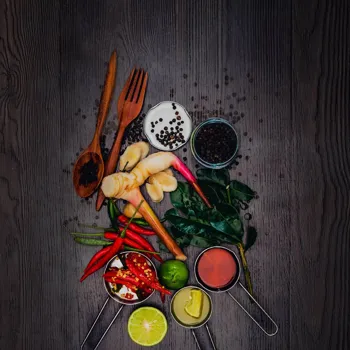
Understanding this journey allows us to appreciate the hard work of our farmers and the value of sustainable practices. Let's embark on this flavorful exploration, tracing the origins and transformations of some of India's most beloved vegetarian staples.
Dedicated farmers nurture land, shaping unique ingredients, preserving food heritage
The story often begins in the fields, where dedicated farmers cultivate the land. The selection of seeds, the nurturing of the soil, and the careful tending of the plants all contribute to the final product we relish.
Weather patterns, soil quality, and traditional farming techniques play crucial roles in shaping the unique characteristics of each ingredient. From the sun-drenched plains where wheat flourishes to the fertile valleys where spices thrive, each region imparts its own special touch.
The farmers are the original custodians of our food heritage, their knowledge passed down through generations. Their tireless efforts ensure a continuous supply of the ingredients that form the backbone of Indian cuisine.
Rice cultivation in India: diverse varieties, importance for food security and environment
Rice, a cornerstone of Indian diets, deserves special mention. From the terraced fields of the Himalayas to the fertile deltas of the south, rice cultivation is a painstaking process. Different varieties, each with a unique aroma and texture, are grown across the country.
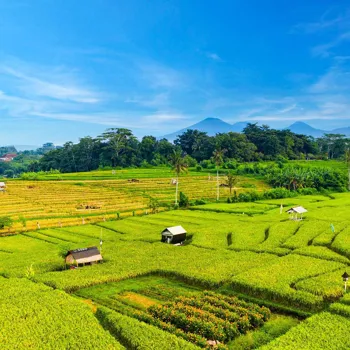
Basmati, known for its long grains and delicate fragrance, is a prized variety. The journey from paddy fields to steaming plates involves careful harvesting, threshing, and milling.
The efficiency and sustainability of these processes are vital for ensuring food security and preserving the environment. Supporting local rice farmers and promoting traditional rice varieties are crucial for maintaining biodiversity and safeguarding livelihoods.
Turmeric's journey from farm to table in India
Turmeric, the golden spice revered for its flavour and medicinal properties, has a captivating journey. The plant's rhizomes are carefully harvested, cleaned, and dried before being ground into the vibrant powder we know so well.
Turmeric farming provides income and stability for many families across India. The demand for organic and sustainably sourced turmeric is growing, reflecting a greater awareness of the spice's health benefits.
Its use in traditional Indian dishes, from curries to lentil soups, has cemented its place as an indispensable ingredient.
Potatoes revolutionize Indian cuisine with versatility and accessibility
Potatoes, now integral to Indian cooking, have adapted well to our climate and culinary traditions. From aloo gobi to potato-stuffed parathas, the potato has become a versatile ingredient.
Farmers employ a variety of methods to cultivate potatoes, and technological integration is helping to improve yield and quality. Sustainable potato farming practices are necessary to minimize the environmental impact of potato cultivation. The humble potato has revolutionized Indian cuisine.
It provides a simple, accessible option that pleases virtually everybody.
Tomatoes enhance Indian cuisine, demand rises, farming tips, health benefits
Tomatoes have become a staple ingredient in Indian kitchens, adding flavour and tang to countless dishes. From curries to chutneys, the tomato's versatility is unsurpassed. The demand for tomatoes has surged in recent decades, leading to a boom in tomato farming.
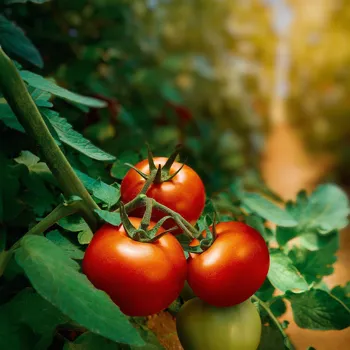
Efficient irrigation and pest control techniques are essential for maximizing tomato yields. Supporting local tomato farmers and choosing locally grown tomatoes whenever possible contribute to a more sustainable food system. Tomatoes are rich in vitamins that are beneficial for the health.
They enhance the taste of any food and are very easy to grow in India.
Connecting with food sources for a vibrant culinary future
From freshly harvested vegetables to aromatic spices, the farm-to-table journey highlights the importance of connecting with our food sources. By understanding where our food comes from and the processes involved in its cultivation, we can make more informed choices.
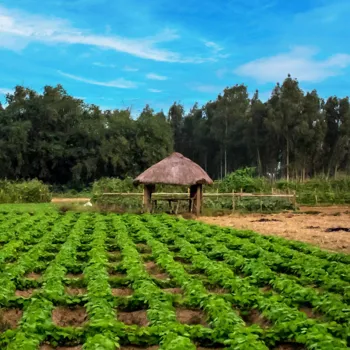
Supporting local farmers, promoting sustainable agriculture, and appreciating the diversity of our culinary heritage are all essential for ensuring a healthy and vibrant future for Indian cuisine. Food connects us to our roots, our culture, and our communities.
Appreciating this connection is key to building a brighter future for all.
Supporting farmers crucial for sustainable agriculture in India
The farmers who grow these ingredients face many challenges, from unpredictable weather patterns to fluctuating market prices. Fair trade practices and government support programs are crucial for ensuring their livelihoods and promoting sustainable agriculture.
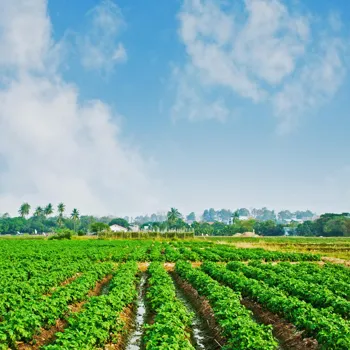
Technological advancements, such as precision farming and improved irrigation techniques, can also play a vital role in enhancing productivity and reducing environmental impact.
By investing in our farmers and supporting their efforts, we can ensure a continuous supply of the ingredients that make Indian cuisine so unique and delicious.
Sustainable farming vital for Indian agriculture & environment
Sustainable farming practices are not just good for the environment, they are also essential for ensuring the long-term viability of Indian agriculture.
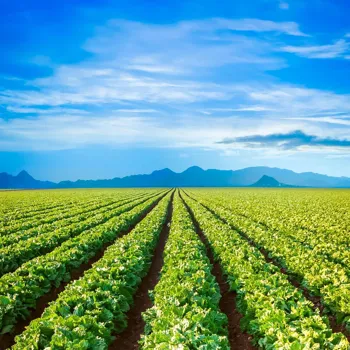
Crop rotation, organic farming methods, and water conservation techniques can help to improve soil health, reduce pollution, and protect biodiversity. By adopting these practices, farmers can produce high-quality ingredients while minimizing their environmental footprint.
Consumers can also play a role by choosing organic and locally grown produce whenever possible.
Collaborative effort ensures food supply chain efficiency and security
The journey from farm to table is a collaborative effort, involving farmers, processors, distributors, and retailers. Each step in the process plays a vital role in ensuring that the ingredients reach our tables in a timely and efficient manner.
Investing in infrastructure, such as cold storage facilities and transportation networks, can help to reduce food waste and improve the quality of fresh produce. Strengthening these supply chains is essential for ensuring food security and supporting economic growth in rural areas.
Indian food processing extends shelf life using technology for food security
The Indian food processing industry has a key role in extending food shelf life. By using technology it keeps food fresh for longer. New packaging keeps the nutritional value intact. Support new innovation in food processing industries for the food security of India.
Education empowers consumers for sustainable food choices
Education also plays a crucial role in promoting sustainable food consumption. By educating consumers about the origins of their food, the challenges faced by farmers, and the environmental impact of their choices, we can empower them to make more informed decisions.
Cooking classes, farm visits, and educational campaigns can help to raise awareness and promote a deeper understanding of the food system. By fostering a culture of food literacy, we can inspire positive change and create a more sustainable and equitable food future.
Preserving Indian food traditions for cultural and economic growth
The traditions related to Indian food are important to be preserved. These traditions define the culture of our country. In today's modern era people are adopting western culture which may not be good in the long run. By eating food grown locally you boost the Indian economy.
This also means increased opportunity for the youth in rural areas to be a part of the farming sector.
AI Generated Content. Glance/InMobi shall have no liability for the content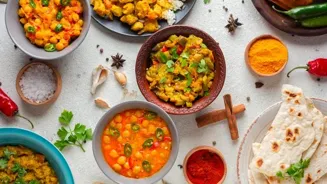










![[WATCH] T20 World Cup 2026: Gautam Gambhir hosts dinner for Team India players ahead of Namibia clash](https://g-mob.glance-cdn.com/public/fc/image/7gXS1xdhs5Q0.webp)



